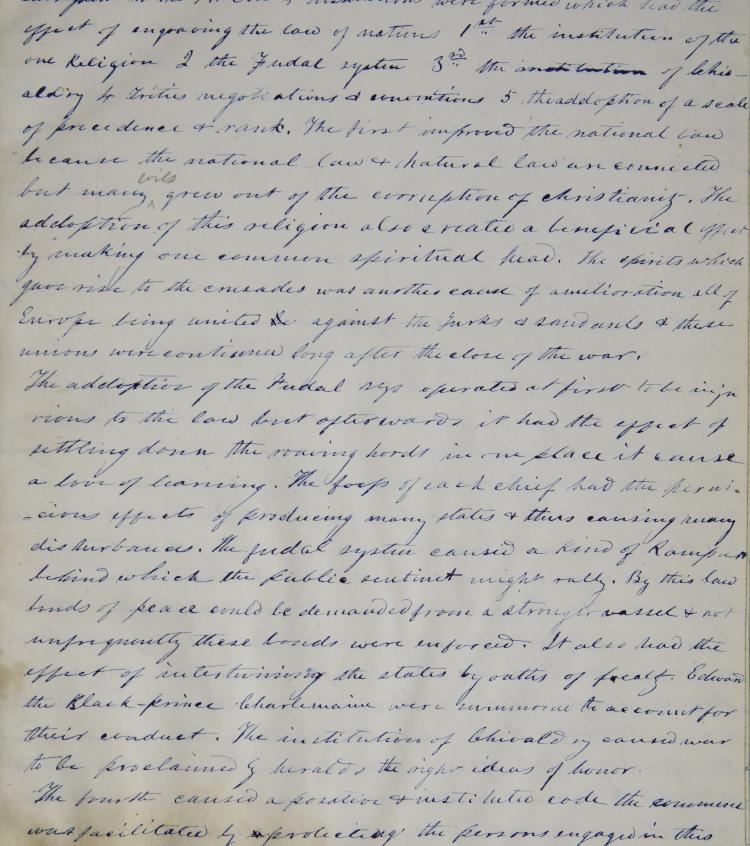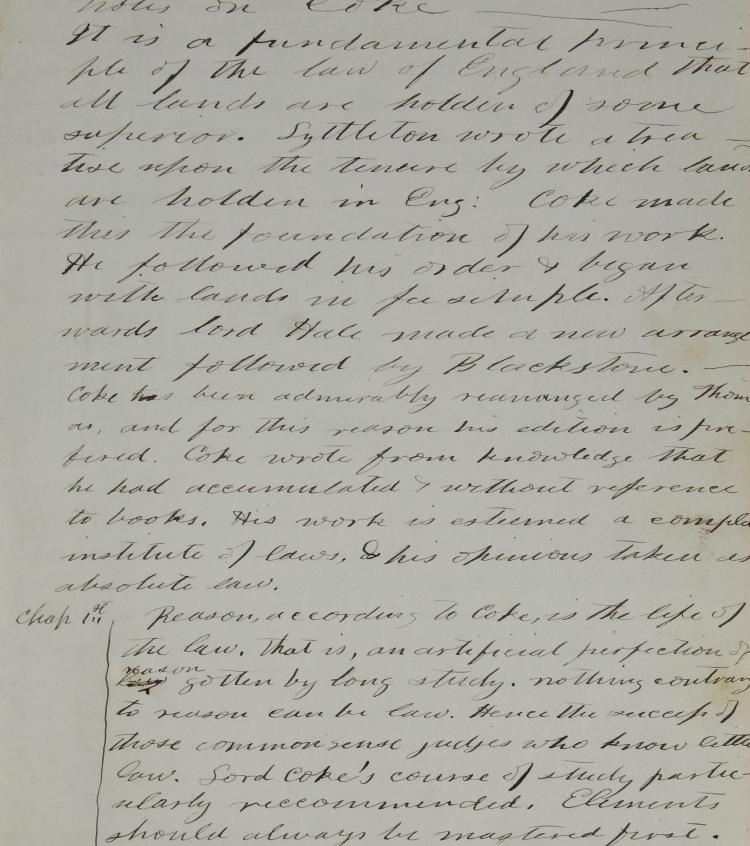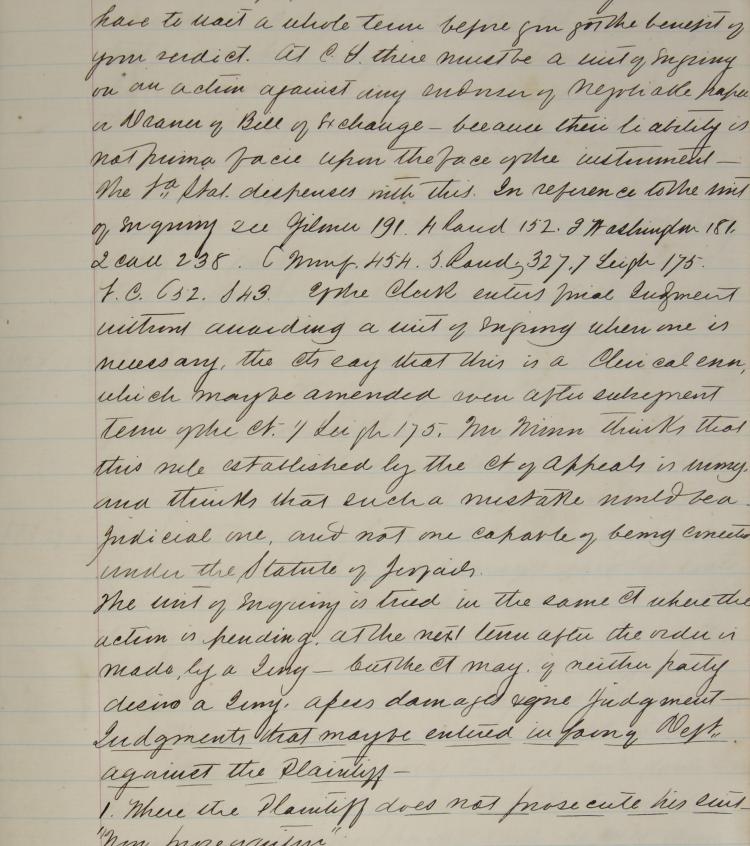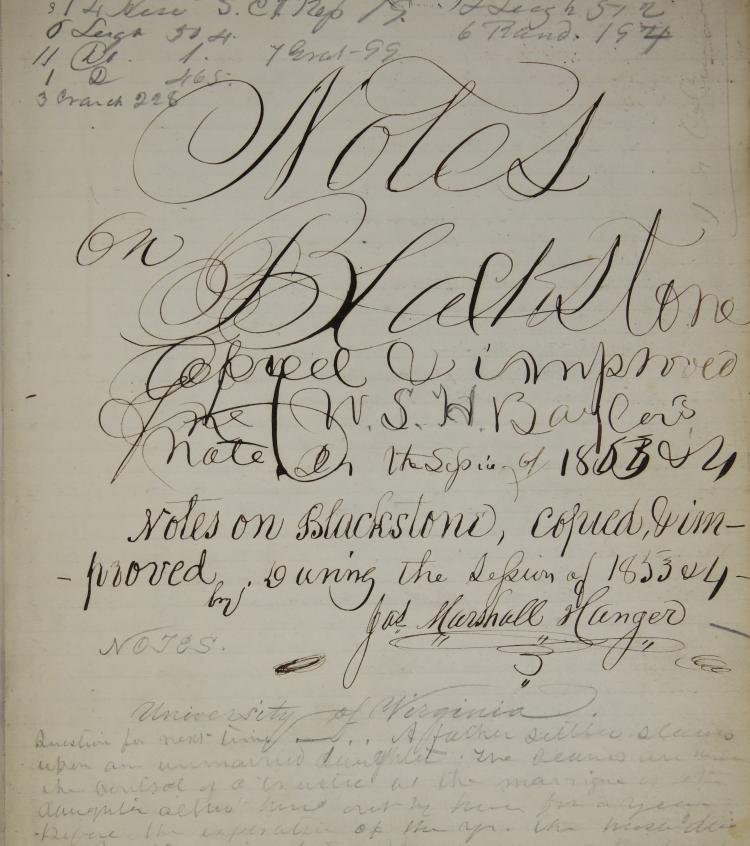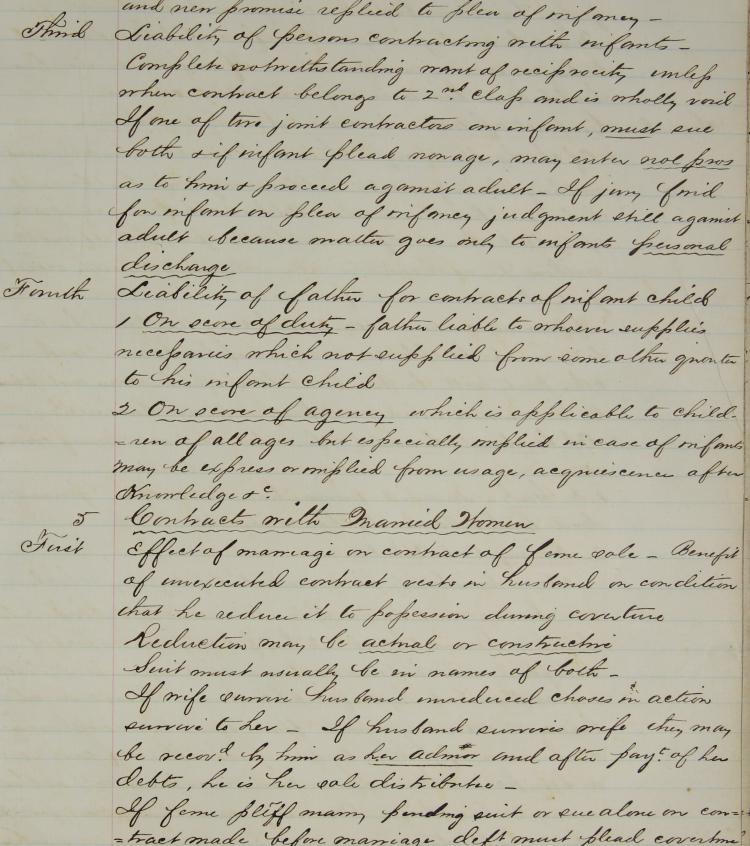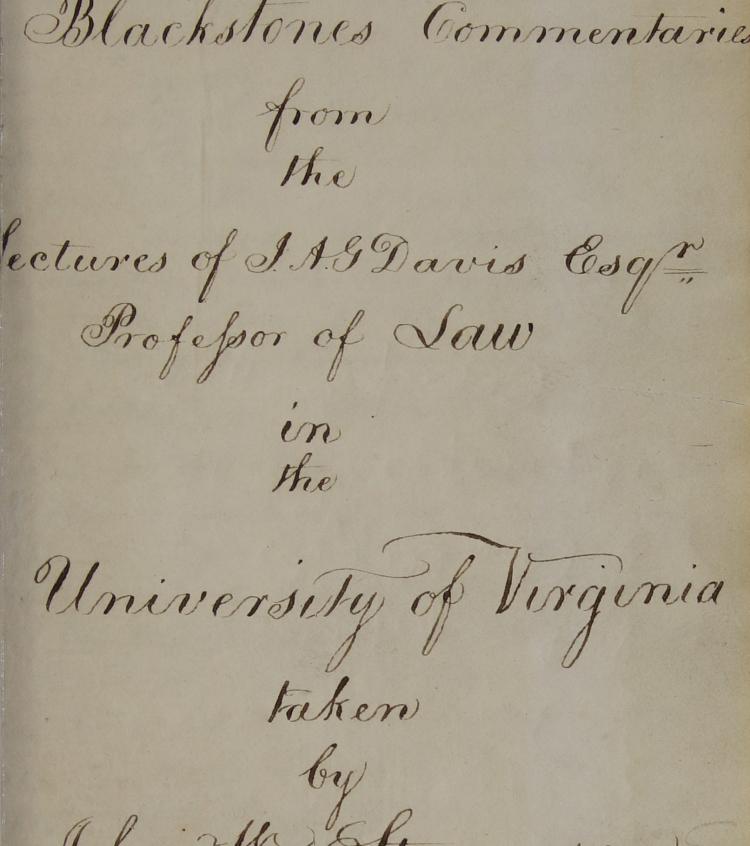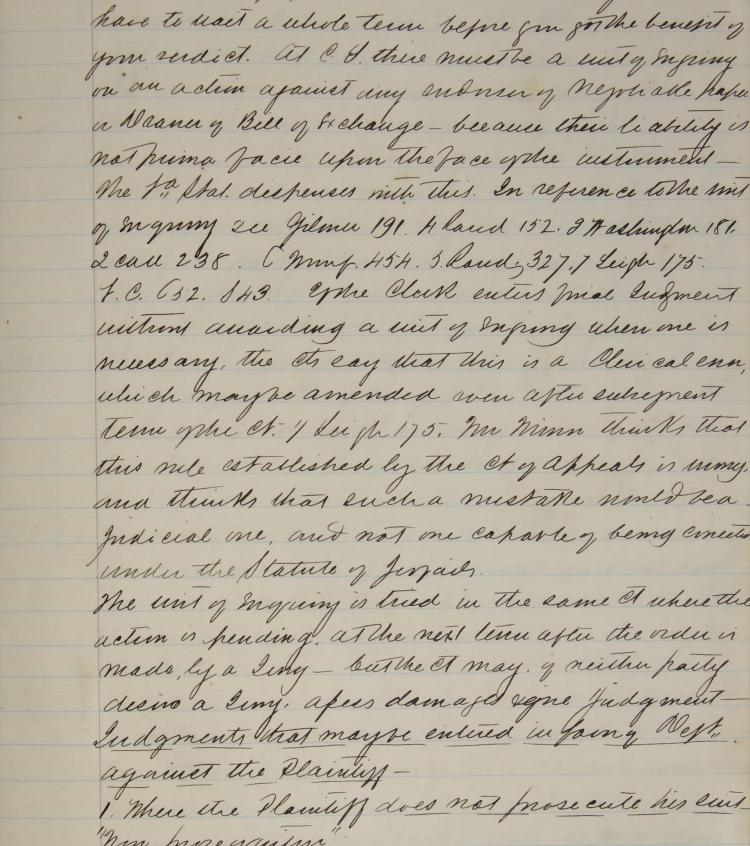The notebooks that follow represent Law Special Collections antebellum notebook holdings. Small Special Collections has a much larger selection in their various student notebook collections, but none are currently digitized.
For research questions related to our student notebook holdings, please use the Contact Us Page.
John S. Henshaw, 1846-1847
John S. Henshaw’s 1846-1847 notes cover John Minor’s Junior Law course. Henshaw’s notebook is organized by date and title and blends lecture notes with textual references to theorists such as William Blackstone and Emer de Vattel. Henshaw references slavery throughout the notebook. His notes speak to various aspects of slavery, from the slave trade and corporeal punishment to general laws of enslavement in Virginia.
I. H. Carrington, 1846-1847
I.H. Carrington’s 1846-1847 lecture notes are from John Minor’s Senior Law course. At the time, classes were organized into “junior” and “senior,” the latter of which covered legal theorists such as Joseph Chitty and Henry St. George Tucker. Like other lectures from this period, the emphasis was on property and contracts, which necessitated a discussion of legal dependents such as enslaved persons, wives, and children.
G. W. Blatterman, 1838-1839
G.W. Blatterman’s 1838-1839 law notes are among the few extant records that document Professor John A.G. Davis’ lectures. According to the frontmatter, the notes were copied from law student Waverly Townes. The notes are organized by topic. In a lecture on slavery titled “Master v. Servant,” Davis established the legal definition of a “master” and then reviewed the kinds of servitude Blackstone defined in his Commentaries.
James Marshall Hanger, 1853-1854
James Marshall Hanger’s 1853-1854 notes are from John Minor’s class. The frontmatter specifies that the notebook is devoted to William Blackstone specifically, a unique feature. Given the focus on Blackstone, Hanger’s notes contain many references to slavery including a discussion on the history of slavery in Virginia as well as federal laws relating to slavery such as the Three-fifths Compromise.
George Lake, 1861-1862
George Lake’s 1861-1862 notes cover John Minor’s course on mercantile law and the law of contracts with an emphasis on the theories of John William Smith. While discussions of contracts focused on the rights of white men, this topic also required professor and pupil to recognize the contractual rights that legal dependents such as enslaved persons and wives lacked in relation to property holding males.
John W. Stevenson, 1832-1833
John W. Stevenson’s 1832-1833 notes cover John A.G. Davis’ 1832-1833 course. The frontmatter specifies that the notebook is devoted to William Blackstone’s Commentaries, one of two in our collection with that focus. Blackstone’s understanding of slavery was a core feature of the law curriculum at UVA. His theories were frequently drawn upon by Law faculty such as Davis and later John B. Minor.
Robert Washington, 1861
Robert Washington’s 1861 notebook is from John B. Minor’s Senior Law course. It is one of two student notebooks in our collection recorded during the Civil War. The notes cover debt liability, property, and contracts, which were common topics in Minor’s classes. Washington’s notes contain a section on the circumstances permitting chattel property, including enslaved persons, to be taken from a man to pay his debt.

